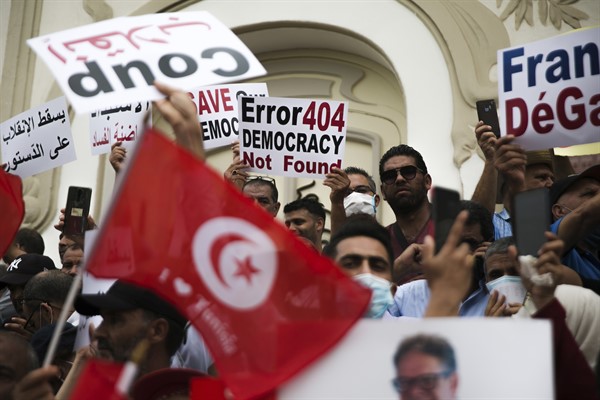It’s a bitter irony that the last embers of the Arab Spring may be snuffed out in the same place, Tunisia, where a spark first ignited massive pro-democracy fires across a region filled with dictatorships. Tunisians, at least some of them, seem to be stirring from their jaded acceptance of a presidential coup. Still, the one country that emerged from the Arab uprisings with a semblance of democracy looks like it’s returning to what was the norm before the revolutions it unleashed in 2010.
Last Sunday, thousands of people turned out to protest in the Tunisian capital, where President Kais Saied, once a revered professor of constitutional law, has launched a series of moves that, despite his denials, are very clearly a coup.
Saied’s initial steps to trample the constitution and dismantle any semblance of democracy in the North African country came in late July, when he abruptly fired the prime minister and disbanded Parliament. Popular reaction ranged for the most part from blasé acceptance to strong support.

